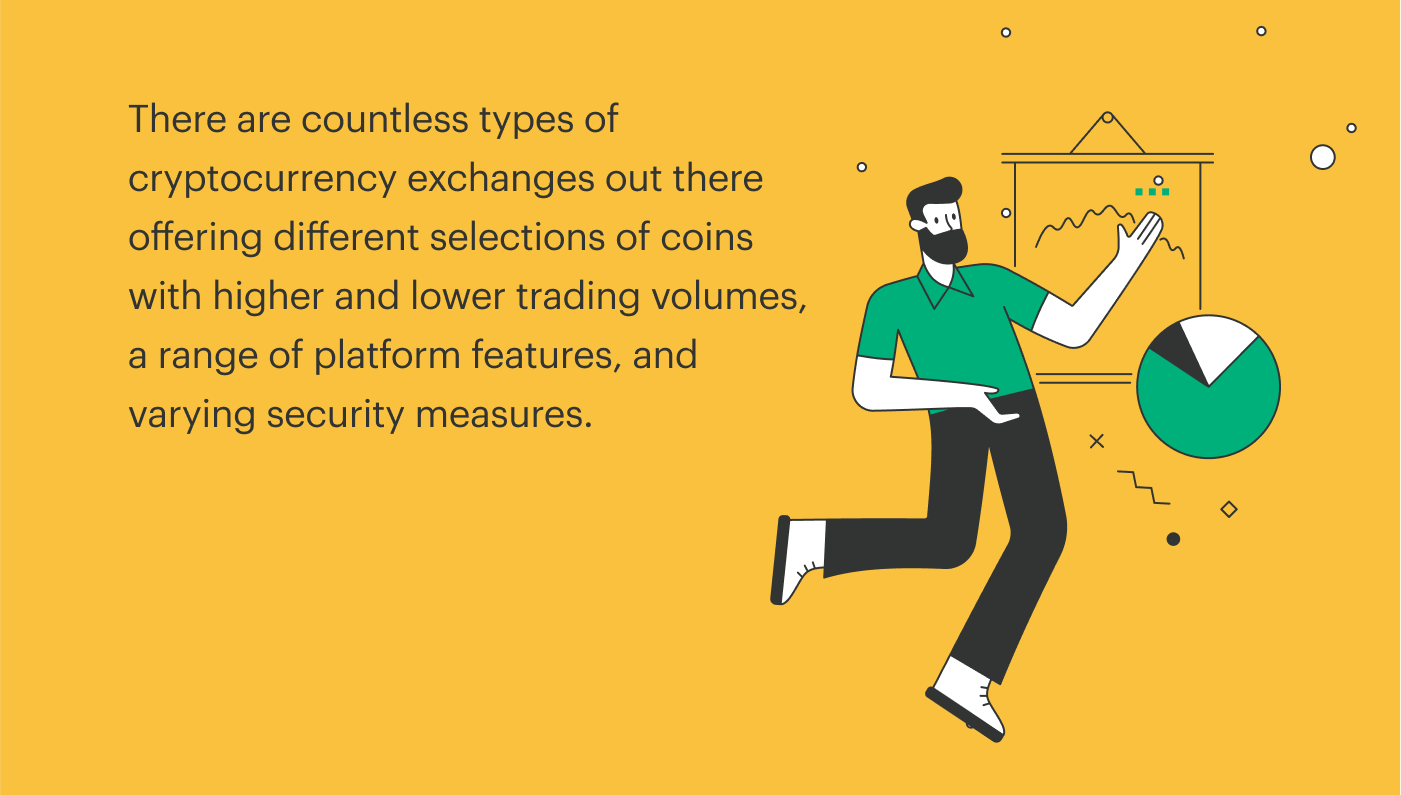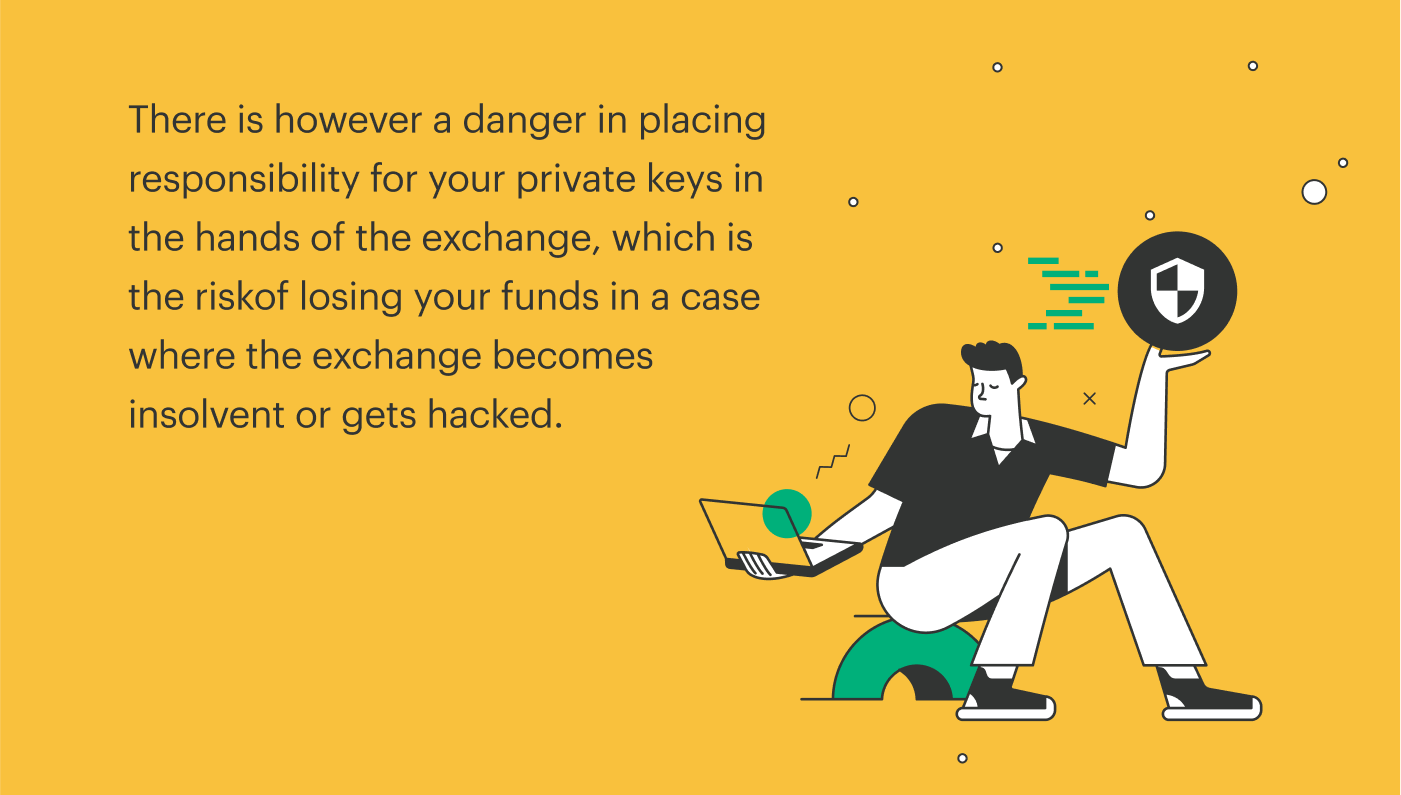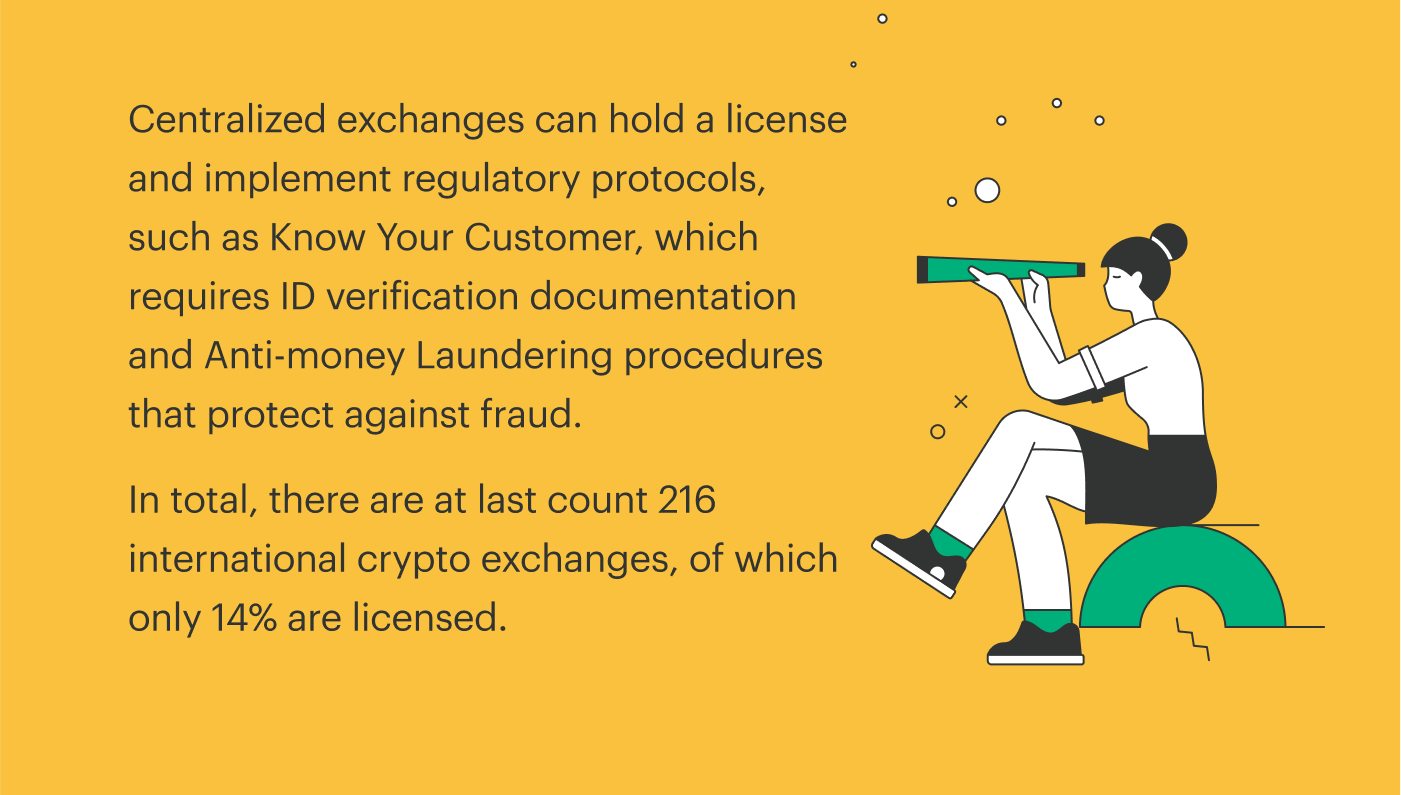How Do Cryptocurrency Exchanges Work?
Over the last we have seen a crypto bull market that has meant increased adoption for all types of digital assets, boosting the legitimacy and popularity of crypto as a whole. Financial institutions, investment firms, corporations and retail investors are all coming on board, many for the first time ever.
If you are interested in taking advantage of the opportunities presented by the crypto space, you may be wondering where to begin. In this guide to buying cryptocurrency on exchanges, we’ll be looking into some important questions that you need to ask before diving in. How do cryptocurrency exchanges work? What are the differences between centralized and decentralized exchanges? On how many cryptocurrency exchanges should you be buying crypto at any given time? What kind of risks are involved in using a cryptocurrency exchange in 2021 and what kind of regulation is in place?
Ready? Let’s get started!
What is an Exchange?
Cryptocurrency exchange sites and mobile apps enable users to buy, sell or exchange digital currencies for other assets, such as fiat (GBP, EUR, USD etc.) or for other cryptocurrencies.
The Main Types of Cryptocurrency Exchanges

There are countless types of cryptocurrency exchanges out there offering different selections of coins with higher and lower trading volumes, a range of platform features, and varying security measures. To diversify your trading as much as possible, and mitigate the risk of a hacked account, it is worth holding currency on two or three separate exchanges at once.
There are also a number of different crypto exchange models to choose from. One distinction is whether or not you can use fiat currency to buy the crypto you trade on the exchange and whether you can convert your crypto back into fiat once you have closed your positions.
Another major difference between exchanges is whether they are centralized or decentralized.
Top Cryptocurrency Exchanges – Centralized
The best-known, biggest exchanges tend to be centralized. These include Coinbase, the largest of all the different cryptocurrency exchanges in terms of users; Binance, the biggest in terms of volume and Gemini, another major competitor in the space. Centralized exchanges are particularly popular with novice crypto investors since they are generally more intuitive and are more likely to offer dedicated 24/7 support across various social channels and via chat.
Another factor that makes centralized exchanges suitable for beginners is that they will take custodial responsibility for holding your private keys. This will generally be far safer than keeping the data on your personal device, since exchanges spend millions on cybersecurity to ensure the integrity and security of your private information. A forgotten seed phrase or mis-saved address can mean the permanent loss of all your savings, so many newcomers gain peace of mind by transferring the custodial responsibility to a major, reputable, centralized wallet.
Risk to Buyers and Sellers

There is however a danger in placing responsibility for your private keys in the hands of the exchange, which is the riskof losing your funds in a case where the exchange becomes insolvent or gets hacked.
In 2019, $292,665,886 worth of cryptocurrency and 510,000 user logins were stolen, while in 2020 there were five major exchange hacks in which $286,933,760 worth of digital currency and 200 pieces of customer data were stolen.
Year by year the situation is gradually improving, with exchanges learning how to better protect their systems. For example, centralized crypto exchange giant Binance was able to cover user funds when it was hacked, with its Secure Asset Fund for Users, which reinvests a portion of the company’s profits in a contingency fund in the case of an attack.
Top Cryptocurrency Exchanges – Decentralized
In contrast to their centralized counterparts that have a central server controlling financial activity, decentralized exchanges (DEXs)are applications built on the blockchain, that use smart contract technology to execute direct peer-to-peer transactions. Payments are faster and smoother than on a centralized system as there is no client verification procedure.
Some of the best examples of decentralized exchanges include UniSwap, one of the fastest growing DEXs, Kyber, and 1inchExchange, a leading aggregator. This kind of cryptocurrency exchange tends to offer a wider choice of cryptocurrencies, as well as access to liquidity pools, where in exchange for providing funds, you can earn trading fees from the transactions occurring in the pool, in proportion to your share of the total liquidity.
On the downside, DEXs tend to be non-regulated, which exposes you to a certain degree of risk from fraud and weak security. Additionally, there is often nowhere to turn if you have an issue, with no support infrastructure such as phone, email, or customer service. For better or worse, you are your own bank.
When using a DEX you are the custodian for your own private keys and are fully responsible for the security of your crypto, on and offline, with complete ownership of your coins.
Unlike with a centralized wallet, which is stored against your personal profile on a central server, with a decentralized exchange you connect your wallet either offline, using a hard wallet like Trzeor of Ledger, or online, using a web wallet like MetaMask.
Regulation and Cryptocurrency Exchanges in 2021

One of the biggest issues facing mainstream adoption in the crypto space is the regulatory uncertainty. Centralized exchanges can hold a license and implement regulatory protocols, such as Know Your Customer, which requires ID verification documentation and Anti-money Laundering procedures that protect against fraud. In total, there are at last count 216 international crypto exchanges, of which only 14% are licensed.
This emerging asset class is developing at an incredible rate and governments as well as other regulatory bodies are having a hard time keeping pace. The primary problem is that every country, and jurisdiction, has its own legislation, with some regions embracing blockchain technology, and others actively prohibiting the purchase and sale of cryptocurrency. In some cases, the laws are vague, and legislation only partially covers the complexities of digital asset transactions. If the crypto arena is to be perceived as a secure, legitimate, mainstream investment option, more work needs to be done.
Do You Need a Cryptocurrency Exchange to Invest in Crypto?
If you want to invest in digital currencies, you don’t have to buy and sell crypto an exchange. One way to minimize your exposure, particularly if you are a relative newcomer to crypto is with an automated platform that is integrated with numerous exchanges and implements a crypto investing strategy on your behalf.
An increasingly popular means of making your investing safer and simpler is with crypto arbitrage, a type of investing that exploits temporary price inefficiencies – differences in the price of a coin, across exchanges.
Here at ArbiSmart, our EU licensed and regulated, fully automated crypto arbitrage platform takes advantage of crypto price inefficiencies on your behalf. All you need to do is sign up, deposit funds and ArbiSmart’s AI-based algorithm does the rest, generating guaranteed passive profits ranging from 10.8% to 45% a year, depending on the size of your investment.
ArbiSmart allows you to exploit crypto speed, efficiency and profitability without having to sit in front of a screen for hours, researching assets, formulating strategies and executing your trades and without any of the risk of speculative crypto investing.
Learn more about ArbiSmart or increase your understanding of a wide range of crypto-related topics, browsing our blog.